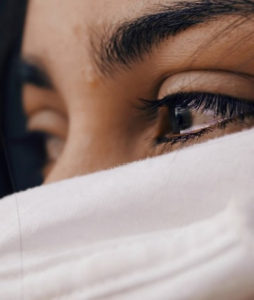WE NEED TO TALK …
In recognition of Mental Health Awareness Month, we’re sharing a 2022 newsletter that garnered the highest number of responses from our readers. It includes references to suicide, now the number two cause of death for 10-24 year olds. For mental health support or emergency, call or text 988.
When I was nine years old, eight days before Christmas, my grandmother passed away. Nearly three decades later I learned the actual cause of death. She had taken her own life. I recognize that when it happened, I was considered too young to be told, yet the stigma clouded memories of her and shrouded in secrecy parts of our family history. This is true, I’m sure, for countless families.
The loss of Naomi Judd, three highly accomplished female college athletes Sarah Shulze, Katie Meyer, Lauren Bernett, Regina King’s son, Ian Alexander Jr., Miss USA Cheslie Kryst — all in seemingly rapid succession this year — are only some of the most high-profile individuals lost to mental illness. Yet, according to Mental Health America, more than 13.2 million adults have suicidal thoughts (a 2024 stat, up from 11 million in 2022).
We need to talk (about what we get wrong). During a training on suicide prevention, presented by Living Works they pointedly tackled one of the most common misperceptions about suicide. That is, if you ask someone if they are considering killing themselves, you’re putting ideas in their heads – not true. “Asking clearly, calmly and without judgment allows people to talk about their thoughts. Up until getting asked, they may not have felt they could talk about the deep pain they’re in. Asking shows you take it seriously; you can help connect them to resources and support.”
We need to talk (about how we treat one another). In an interview with Cheslie Kryst’s mother, April Simpkins said Cheslie had “high functioning depression.” Her stunning achievements (in sports, academia, entertainment) were “no match for what she struggled with in her own mind … exacerbated by comments in social media.” Then she made a sad observation, “People aren’t kind to people with mental illness.” There is a real need for open, honest dialogue about mental illness, especially for those seeking treatment, to give them the same unconditional support given to people coping with physical illnesses.

We need to talk (about checking in … genuinely checking in). Simpkins also pointed out that her daughter was adept at deflecting what was really going on with her. In response to a question about how she was doing, Cheslie would quickly turn it back to the inquirer, letting the conversation naturally flow to their lives instead of hers. This observation made me pause and think about how much more intentional I could be about checking in with people I care about. You’ve likely heard the phrase, “check in on your strong friends” – they may be carrying the heaviest burdens and adroitly hiding the weight. Check in. Listen carefully. Let people feel seen, heard, and valued.
We need to talk (about prevention). Mental Health America advocates making mental health screenings common for all ages, including children, for early intervention. They have a free online screening tool here. “People needing early intervention want four things, and only one of these is a referral to treatment. The others are: more information about their mental health problem; tools they can use themselves to monitor and improve their mental health; and connections to people like themselves who have had the same feelings, thoughts, experiences, and lived through them to recovery.”
We need to talk (about how alternative therapies can support mental health). This is the work of Soul Seeds. Our specific meditation techniques can help people cope with anxiety, stress, and depression. Many of our volunteers, trained in these techniques, cite the fact that their lives have been dramatically changed by the meditations and learning how to work with their own energy. Each of them wants to give back because they know the positive influence of this work on their lives.
Soul Seeds connects with communities that have had little to no access to meditation and its benefits. After a recent session with a team from the Tacoma Housing Authority, each person commented on how stressed, even anxious, they felt coming into the session and how surprised they were that, after a 15-minute meditation, they felt better and more relaxed.
Suicide is an excruciatingly stark reality, and I am not suggesting that meditation is the panacea. I am not a psychologist, therapist, or other mental health professional — I am conversant only in my own experience — but for Mental Health Awareness month, it simply felt important to talk about it.

Melanie Davis-Jones (she/her/hers)
Board Member
RESOURCES | 2024
|



